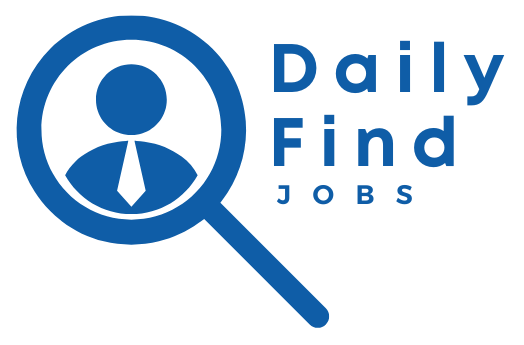The Role of AI in Modern Recruiting is pivotal in today’s fast-paced digital world. With AI streamlining processes, companies can efficiently enhance talent acquisition efforts. From automation to advanced analytics, AI tools and technologies are increasingly crucial. This transformation addresses various challenges, ensuring a more effective and insightful recruitment journey. As we explore the benefits and future trends, it’s clear that AI isn’t just a tool but an essential partner in hiring practices.
How AI Streamlines the Recruitment Process
Artificial Intelligence is reshaping how companies hire, optimize, and strategize recruitment. With AI-driven systems, the matching process between candidates and job openings becomes significantly more efficient. Algorithms analyze resumes and assess qualifications based on predefined criteria, narrowing down candidate pools swiftly and accurately. This automation eliminates bias, ensuring a fairer selection process.
Utilizing AI, recruiters can automate administrative tasks such as scheduling interviews. This allows them to focus more on strategic decision-making and personal interactions that machines cannot handle. Additionally, AI systems enhance job advertisements by targeting the right audience through data analysis.
Furthermore, AI’s capabilities include predictive analytics, which forecast trends in candidate behavior and job market demands. These insights can guide companies in adjusting their recruitment strategies to maintain a competitive edge. Through AI, companies streamline their processes, ensuring efficient talent acquisition, better candidate experiences, and improved organizational performance.
Benefits of AI in Talent Acquisition
Efficiency and Speed in Hiring
AI-driven tools significantly accelerate the hiring process by automating repetitive tasks like resume screening, scheduling interviews, and sending follow-up emails. This allows recruiters to focus on more strategic activities, thus reducing the time-to-hire.
Enhancing Candidate Matching
Artificial intelligence enhances candidate matching by analyzing vast amounts of candidate data to identify ideal matches for specific roles. This ensures that organizations attract top talent that aligns with their company culture and job requirements.
Data-Driven Decision Making
AI tools provide valuable insights through data analysis, allowing recruiters to make informed decisions. These insights can include candidate sourcing effectiveness, recruitment marketing ROI, and efficiency metrics, optimizing recruitment strategies.
Improving Candidate Experience
AI enhances the candidate experience by offering personalized communication and faster response times. Chatbots, for instance, can interact with candidates 24/7, answering queries and guiding them through the recruitment process.
Bias Reduction
One of the significant benefits of using AI in recruitment is the potential to reduce unconscious biases. By standardizing evaluations and using algorithms that focus on candidate qualifications rather than subjective factors, AI helps create a more inclusive hiring process.
Cost Savings
By automating repetitive tasks and improving the efficiency of the recruitment process, AI can lead to significant cost savings. Organizations can allocate resources more effectively, resulting in better financial investment in talent acquisition.
Challenges and Solutions in AI-Powered Recruiting
One significant challenge in AI-powered recruiting is ensuring unbiased decision-making. AI algorithms can inadvertently perpetuate biases present in historical data, impacting diversity and inclusion efforts. Organizations need to implement robust testing and validation processes to continuously monitor and adjust AI models to mitigate such biases.
Furthermore, the integration of AI in recruiting can lead to over-reliance on technology, potentially diminishing the human aspect of recruitment. Recruiters may rely heavily on AI tools and overlook essential emotional intelligence traits that are better assessed through human interaction. Balancing technological efficiency with personalized candidate engagement is essential.
Data privacy is another concern. With extensive data processing involved, ensuring the privacy and security of candidate information is paramount. Companies must comply with data protection regulations like GDPR while maintaining transparency in how AI tools process candidate data.
On the flip side, AI offers solutions to these challenges. Implementing diverse datasets during AI training can enhance unbiased decision-making. Regular audits and updates to AI systems ensure algorithms evolve with the recruitment landscape.
By combining human oversight with AI efficiency, organizations can ensure a fair, balanced, and inclusive recruitment process while still harnessing the many benefits AI brings to talent acquisition.
AI Tools Revolutionizing Recruitment
AI tools are transforming the recruitment landscape by automating various stages of the hiring process. For instance, AI-powered platforms are used to screen resumes efficiently, reducing the time recruiters need to spend on this task. By analyzing vast amounts of data, these tools help identify the most suitable candidates based on predefined criteria, which enhances the quality of hires.
Furthermore, AI assists in enhancing candidate experience through chatbots that provide real-time interaction and updates, keeping applicants informed throughout the hiring process. Chatbots can answer frequently asked questions and guide candidates, making the application process smoother and more engaging.
AI-driven analytics tools are also invaluable for tracking recruitment metrics and identifying bottlenecks, allowing HR teams to optimize strategies and improve efficiency in talent acquisition. These tools can reveal insights into the effectiveness of different recruitment channels, helping organizations allocate resources more effectively.
With the help of AI, video interviewing platforms are adopting advanced features such as facial recognition and sentiment analysis. These features supply additional data points about candidate engagement and emotional cues, allowing recruiters to make more informed decisions.
Future Trends of AI in Hiring Practices
The landscape of recruitment is rapidly changing with the advent of AI technologies. As we look ahead, several key trends are anticipated to reshape how organizations approach hiring. One of the major trends is the increased personalization of the candidate experience through advanced AI algorithms that can tailor communication based on a candidate’s unique profile and preferences.
Furthermore, the integration of AI in hiring is expected to enhance bias reduction by offering more objective evaluations. This can integrate data-driven insights to help human resource departments make fairer hiring decisions, potentially leading to a more diverse workforce.
Another emerging trend is the role of natural language processing (NLP) in assessing candidate fit through voice and text analysis during interviews, providing recruiters with deeper insights into a candidate’s potential.
The development of AI in recruitment will also see growth in the use of predictive analytics to foresee a candidate’s future performance and tenure, making the recruitment process more proactive rather than reactive. Moreover, AI-powered platforms could facilitate better matching of job roles to candidates, optimizing fit and retention rates.
Finally, trends like the integration of AI with other technologies, such as virtual reality for immersive job previews, or the ongoing expansion of AI capabilities in mobile recruitment tools, suggest a horizon full of innovations that could reshape global hiring practices in unforeseen ways.


